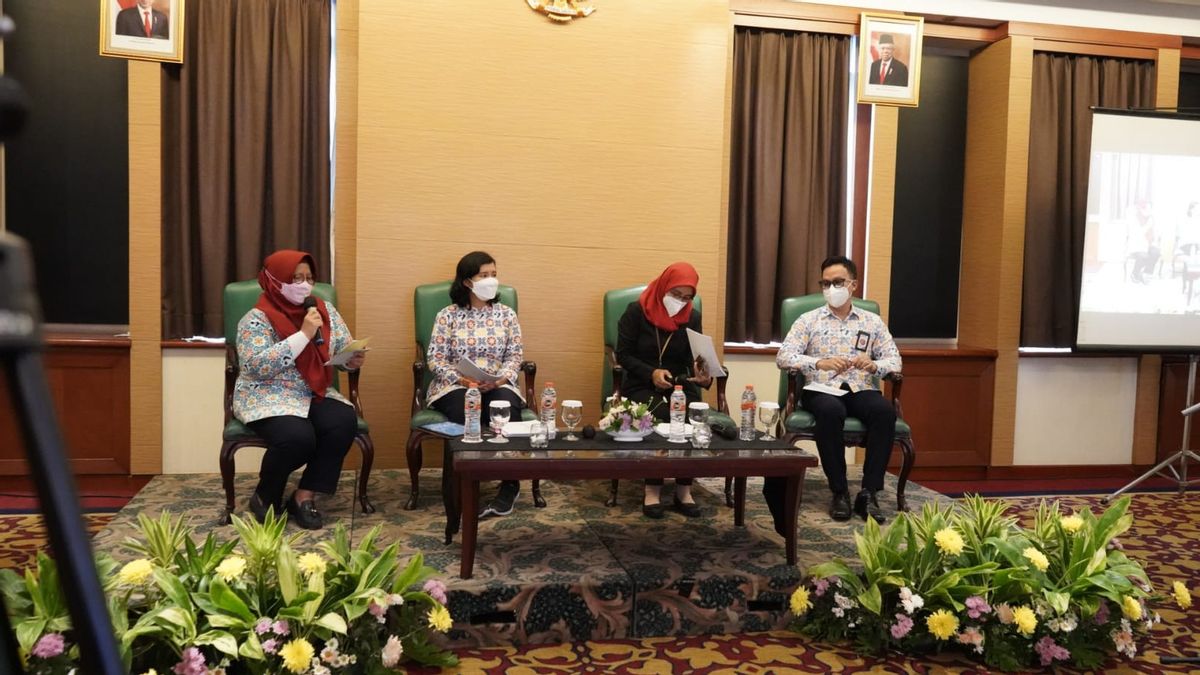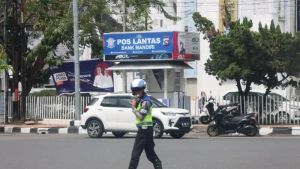JAKARTA - RAN PASTI (National Action Plan for the Acceleration of Indonesia's Stunting Rate Reduction) is a derivative regulation or derivative guideline from Presidential Regulation Number 72 of 2021 concerning Acceleration of Stunting Reduction which will later be used as an implementation guideline.
RAN PASTI is an effort by the central government to consolidate or converge activities, programs and budgets, which include local governments as well as various stakeholders as well as the private sector. Local governments do not need to make a Regional Action Plan (RAD) because RAN PASTI is very detailed in terms of activities, targets and indicators.
“RAN PASTI is actually a derivative of the National Strategy, so we have had a national strategy for 3 years. In the regions there is no need for RAD. The directives in RAN PASTI are adapted to the context of each region. Because after all, each region is different and we realize that the acceleration efforts will not take long to reach 14%. Later we will see from the data that we will convey, such as DKI Jakarta, Kep. Riau, Jambi, there are some who are close to a dozen percent in this regard. different from those still above 25%. So there will be differences in treatment from one area to another. So hopefully this will be a common guideline. This RAN PASTI is to be translated into plans in each region according to the characteristics of the problems faced by each region,” explained Deputy for Human Development Policy Support and Development Equity of the Setwapres, Dr. Ir. Suprayoga Hadi, MSP at the RAN PASTI Regional I Socialization event which was held hybridly in Jakarta and online through a zoom meeting and live streaming on the BKKBNOfficial youtube account, Tuesday 8 March.
There are 3 approaches in the implementation of RAN PASTI, namely the first with a stunting-risk family approach which is carried out with upstream interventions, namely preventing the birth of stunted babies and handling stunting toddlers.
Second, through a multi-sectoral and multi-stakeholder approach through PENTAHELIX, namely providing a platform for collaboration between the government and elements of stakeholders (business, universities, communities and media).
Third, an integrated nutrition intervention approach by carrying out specific and sensitive interventions that focus on the incubation program that pays attention to the health and nutritional adequacy of 3 months of prospective brides, pregnant women, mothers during intervals, under-fives and toddlers supported by the provision of sanitation, access to clean water and social assistance.
The 8 provinces that are included in Regional I of the RAN PASTI socialization are West Sumatra, Riau, Riau Islands, Jambi, Bangka Belitung Islands, Bengkulu, DKI Jakarta, and Central Kalimantan. The stunting prevalence rate according to SSGI 2021 data in West Sumatra is 23.3%; Riau 22.3%; Riau Islands 17.6%; Jambi 22.4%; Bangka Belitung Islands 18.6%; Bengkulu 22.1%; DKI Jakarta 16.8%; and Central Kalimantan 27.4%.
On the same occasion, one of the central presentation team, DR. Dian Kristen Irawaty, S. ip, MAPS explained that the convergence of family-level services in RAN PASTI, for example, for prospective brides to be given a Blood Enhancement Tablet (TTD), reproductive health assistance and nutrition education since 3 months pre-marriage, examination of anemia status (hemoglobin, receiving health and nutrition management.Pregnant women receive a minimum of 90 TTD, mentoring, chronic energy deficient pregnant women (KEK) receive nutritional intake, pregnant women with stunted fetal growth (IPM) receive health management.
For mothers during the interval or post-delivery period, they get postnatal family planning services. Then toddlers 0-23 months, those who weigh less than 2.5 kg and height below 48 cm receive health and nutrition management, infants aged 6-23 months receive complementary foods (MP-ASI), toddlers 0-23 months Those with chronic infections will receive health management, if they are malnourished, they will receive additional nutritional intake, those with poor nutrition will receive treatment for malnutrition and so on.
The socialization of RAN PASTI was organized by BKKBN in order to establish the commitment of regional heads and ranks of provincial and district/city governments in accelerating stunting reduction, establishing coordination and between the central Stunting Reduction Acceleration Team (TPPS), provincial TPPS and district/city TPPS, and good understanding. together in implementing RANPASTI in supporting targeted specific interventions and sensitive interventions in accelerating stunting reduction.
This socialization was held in two ways, namely offline in 12 provinces that have the highest prevalence and absolute rates of stunting in Indonesia, namely Central Java, East Java, NTT, Banten, North Sumatra, West Java, West Kalimantan, Aceh, West Sulawesi, South Kalimantan, NTB, and Southeast Sulawesi. Meanwhile, the socialization using a combination of face-to-face and long-distance (hybrid) is divided into 3 regions by considering the balance of the number of participants in each region.
The English, Chinese, Japanese, Arabic, and French versions are automatically generated by the AI. So there may still be inaccuracies in translating, please always see Indonesian as our main language. (system supported by DigitalSiber.id)













